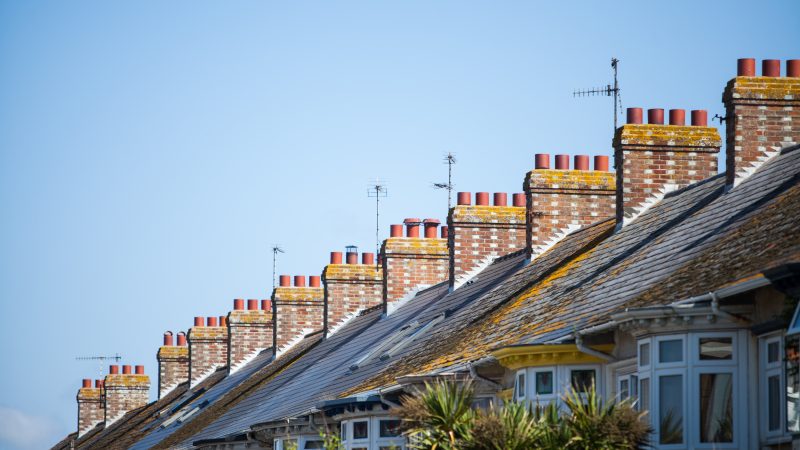
Imagine the family home you have created with love and happiness suddenly being taken away from you after living there for more than a decade. Your private landlord has exploited a loophole in the law which allows them to evict you even though you did nothing wrong.
You might think this happened in Victorian times. But you would be wrong. As you read this article, my constituents Anne and John Slater are ‘sofa surfing’ at the homes of family and friends since being evicted from their rented home of 11 years.
Such is the chronic lack of homes to rent that the retired couple have been unable to find anywhere affordable or fit to live in. Tens of thousands of families in this country have been subject to the same horrendous set of events.
Providing decent homes should not be left to the market
Let’s be blunt about it. The provision of an adequate number of decent homes should not be left to the market. Families are under pressure because of the dogma that the market can satisfy social need.
The Local Government Association reported that there were more than one million houses with planning permission that have not been built. Developers often sit on the unbuilt land in the expectation that its value will increase.
The CPRE reported that local councils’ registers of brownfield land reveal that more than 1.2 million homes could be built on 23,000 sites. Meanwhile, escalating house prices and the wage squeeze means that “over the last 25 years, housing affordability has worsened in every [local authority]”, according to the ONS.
Private landlords have filled the void. Four million households are living in private rented accommodation. Some people will say this demonstrates the market works, except perhaps for the ‘occasional rogue landlord’. But is this really true?
Apart from the increasing use of no-fault of evictions, about a quarter of private landlords provide housing that is not fit for habitation. The state props up private landlordism with housing benefits. Sadiq Khan has highlighted that thousands of private landlords are pocketing (billions of pounds) of housing benefit for dangerous, poorly insulated homes riddled with damp and mould.
Gove’s plans have more holes than a bag of Yorkshire tea
Now, as this discredited parliament moves towards its end, the Levelling Up Secretary Michael Gove has announced he will end no-fault evictions. But scratch beneath the surface, and another reality emerges. His proposals have more holes in them for landlords to exploit than a bag of Yorkshire Tea.
This is not surprising, perhaps, when you discover that 143 Tory MPs, including frontbenchers, are landlords. Gove came down on the side of the landlords. He is closing the no-fault eviction door, but opening several others, including making it easier for landlords to evict tenants with just two-weeks notice for ‘anti-social behaviour’.
But the proposed legal definition of what would constitute grounds for eviction is “any behaviour capable of causing nuisance or annoyance” (my emphasis). It’s not difficult to see that this is a loophole so large that it will be exploited by unscrupulous landlords. He isn’t tackling unjustified rent rises either.
How should Labour react? In England, there are 1.4 million fewer households in social housing than there were in 1980. It’s the shortage of this decent and secure accommodation that is at the root of why bad landlords are empowered to exploit.
Labour needs renters to vote for us, not just homebuyers
Polling shows a huge majority say building more homes to rent (council housing and social landlords) is more important than increasing the supply of homes to buy.
Labour has committed to a massive programme of housebuilding. It is the right thing to do. The focus is on housing for sale – they have suggested a 70% target for homeownership. Yet the average price of new houses is out of reach for people on the average income. And the demographics of the party’s path to a successful electoral strategy needs both house buyers and renters to vote for us.
It is not impossible to stretch financing for social rented sector building if we allow councils and housing associations to use their existing asset base to borrow more capital. This would create a virtuous circle of meeting the country’s housing need and target a wider demographic.
We need to abandon market dogma, create more social rented housing, tackle abuses in the private sector, review the role played by private developers and deploy the staggering £16bn spent on housing benefit annually as leverage to secure social objectives.
Former prime minister Clement Attlee’s governments created the NHS, brought the coal mines and railways into public ownership and transformed working class housing. They dismantled the war economy and put people back to work building one million new homes when materials were in short supply. A programme of this ambition would not only help put Labour into office but would sustain through a second term.




More from LabourList
‘AI regulation is key to Labour’s climate credibility’
Ben Cooper column: ‘Labour needs to rediscover its own authentic populism’
‘Westminster rethought: a new purpose built site and a museum of democracy’